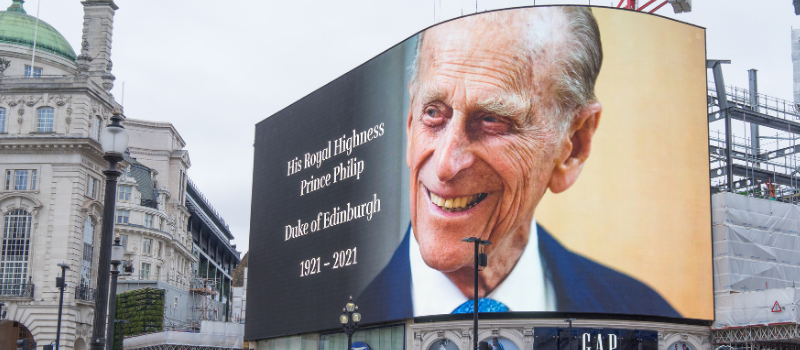The United Kingdom went into national mourning last week as the news broke that His Royal Highness Prince Philip, Duke of Edinburgh, sadly passed away on Friday at the age of 99. He was the longest-serving royal consort in British history, having been married to Her Majesty The Queen for more than seven decades.
The question that is now starting to surface within the industry is “what will happen to Prince Philip’s multimillion pound estate?”.
Official government guidance states that there is normally no Inheritance Tax to pay if “you leave everything above the £325,000 threshold to your spouse, civil partner, a charity or a community amateur sports club”.
If plans were in place for all of his estate to be handed to the monarch, the Queen could be exempt from paying Inheritance Tax on the Duke of Edinburgh’s private wealth under a legal clause which was agreed by former Conservative Prime Minister, John Major, in 1993. The clause was created to allow inheritance to pass from “sovereign to sovereign” or the consort of a sovereign to a reigning monarch. This was also applied to the Queen Mother’s estate, despite her not being the sovereign or ever having been, ultimately protecting the Queen from being handed an Inheritance Tax bill in the region of £20 million.
Whilst there isn’t a clear indication of Prince Philip’s exact wealth that could be inherited tax-free by the sovereign, there have been several speculations. David McClure, the publisher of The Queen’s True Worth, a book on the monarch’s finances, spoke to i last year and said:
It could be more than £10m, but no-one really knows how much. I’ve seen figures of £20m or £30m, which I think are excessive.
If the Duke of Edinburgh decided to leave his bequest to other members of the Royal Family besides the Queen, they could be faced with paying an Inheritance Tax bill of millions. Throughout his 99 years, Prince Philip was associated with hundreds of charities in one capacity or another, either as a president, patron or honorary member. If the Duke of Edinburgh decided to leave his entire estate to one of the hundreds of charities he supported, there would additionally be no Inheritance Tax to pay. Alternatively, his estate may qualify for a reduced rate of 36 per cent payable in Inheritance Tax if he has decided to leave at least 10 per cent of his net estate to charity.
If he was being tax efficient, Prince Philip would have left his entire estate to the Queen, with a view to her leaving it to Prince Charles, but it’s an interesting situation.
McClure also raises an interesting point that when the Queen does eventually pass away, her wealth will likely be inherited by her eldest son and immediate successor to the throne, Prince Charles, who will also be exempt from an Inheritance Tax bill as the new sovereign. However, if the Queen does choose to leave any part of her estate to any of her other issue or relatives, Inheritance Tax will be payable.
Many people ask the question - “Why should a monarch receive special treatment for Inheritance Tax?”. The rationale behind this is that the monarch is not able to work or trade, therefore is not able to “grow” their estate as the average person would throughout their lifetime. Additionally, if the monarch’s estate was repeatedly subject to Inheritance Tax then their level of wealth would drop dramatically.
For the average individual, Inheritance Tax is currently charged at 40 per cent on the value of an estate above the nil rate band, which is currently £325,000 for an individual. In order words, a deceased can pass on up to £325,000 of wealth tax-free. Married couples and civil partners are entitled to double the allowance to £650,000 before tax is payable.
Inheritance Tax is a significant part of the estate administration process and it is one area that tends to cause families dealing with a bereavement a significant amount of stress. Additionally, Executors and Administrators are legally and financially responsible for ensuring the tax is dealt with correctly. It can often be difficult to understand which is why many families turn to an estate administration provider such as Kings Court Trust to relieve them of this burden.
Kings Court Trust is an award-winning probate and estate administration provider who can take care of the complicated practicalities after death, including Inheritance Tax. If you have any questions about probate or estate administration, call our experienced Client Services Team on 0300 303 9000.






